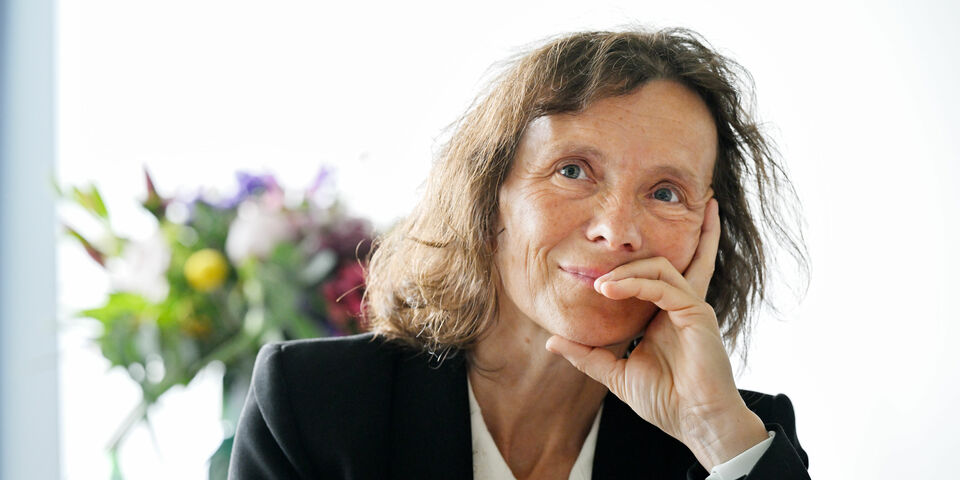What do you do about sustainability yourself?
“I love to ride my bike and do it all the time. For years I didn’t even have a car. If I weren’t living all the way in Antwerp, I’d ride my bike to the TU/e campus every day. As this is simply impossible due to the distance, I try to take the train as often as I can, even though the connection is far from ideal.
Another thing I do - or rather: don’t do - is buy lots of clothing and other stuff. My material needs are really small. When you run into me, chances are high I’ll be wearing something you’ve seen before! And if I do need something, I’ll go out to the store to buy it. I try to avoid shopping online and returning all kinds of things. And I try to pass this on to my children as well.”
What does TU/e do about sustainability?
“All kinds of things happen at TU/e, in the areas of research, education, and operations. About twelve percent of all scientifi c articles published on behalf of TU/e relates to one or several SDGs (Sustainable Development Goals). Furthermore, a great many bachelors and masters (73 bachelors and 56 masters, ed.) are tied to sustainability. This building (Atlas, ed.) won the award for most sustainable education building in the world a few years ago, and many of our buildings have solar panels (2854 in total, ed.).
And we shouldn’t forget about smaller-scale efforts, like limiting the number of posters and fl yers at events. All in all, there are many large and small initiatives, but they’re sometimes a bit fragmented. Our Sustainability Ambassador Anna Wieczorek is working hard to bring everything together.”
What do you expect from students when it comes to sustainability?
“Above all, I want to draw attention to the social aspects of sustainability. I want to make students, but also staff, aware that it’s not only about technology, but also - and especially - about behavior. Sometimes sustainability is seen as something for the elite, but we all have a responsibility in this respect. Choose a study program or job linked to the transition to a more sustainable world, limit your online purchases, ride your bike to campus, pack your own lunch for a change. There’s so much you can do. But in the end, everyone has to be able to make their own choices. I don’t like to tell people what they can and cannot do.”
If sustainability is important for TU/e, why are we still working together with the fossil industry?
“Because we must take our responsibility when it comes to sustainability. Our university is the source of almost infi nite knowledge that can make a sustainable difference in a sector such as the fossil industry. Projects geared towards sustainable transitions can be mobilized at a large scale by entering into collaborations with companies like Shell, as they have the money and the infrastructure. Projects like that won’t get off the ground if you reject such partners. Everyone has to chip in, or we won’t make it.
Having said that, it’s important we remain a critical partner in these kinds of collaborations. For example, we only work on projects having to do with the sustainability transition of these kinds of companies, never on fossil projects. In the end, we don’t look at the partner level but at the project level – so our knowledge can make a real difference.”


Discussion